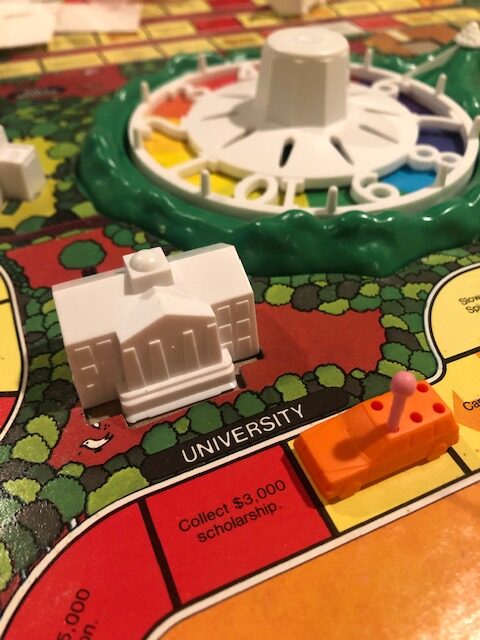“My daughter called me from the stairwell of her dorm crying.”
“My son is texting me and wants to come home for the weekend. What would you do?”
“Does anyone else have a kid who is struggling?”
These are quotes from actual parents, posted in online forums for the collegiate Class of 2025. After the stressful application process during the pandemic, the preparation, the move-in process, and the emotional goodbyes, many adults are blindsided by the homesickness that their newly minted freshmen may experience. This issue is not just limited to freshmen. Students who spent last year doing college virtually may be away from home for the first time. Seeing our children unhappy after so much eager anticipation leads to worry, sadness, and a general uncertainty among us parents about what to do. This bodes the question: How do we best support homesick kids?
A recent article written by Amy Baldwin, founder of Higher Ed Parent, talks about what she describes as “the three pillars of a satisfying and successful college experience” – Emotional Support, Social Support, and Academic Support. Having worked with many teens and college students in my practice, I agree that these areas are all essential for a smooth transition to and overall positive experience of college life. While we want to foster independence in our young adults, we most likely will need to guide them through building each of these pillars.
If you have a struggling college student, ask the overarching question: “Is she/he tethered to the school community?” Are they having a positive enough experience with their roommate(s) and meeting other students in their living environment? Are they connecting with other kids in their classes? Are they comfortable reaching out to a peer, professor, or TA if they need academic support?
Involvement
Involvement is also very important. The college years can provide so many opportunities to continue to pursue existing interests, or to try something new. My own college freshman decided out of the blue to try out for his University’s Club Volleyball team. At the height of 5’8” and having never played organized volleyball in his entire life, I almost fell off of my chair. But I was also happy that he, encouraged by a friend who had also never played, was willing to put himself out there and just see what would happen. Whether it is sports, organized groups, community service, a campus job, or even the Chocolate Milk Club (yes, that is a real thing at many colleges and universities), it is essential that students find and explore things that they enjoy doing. Activities will connect them with peers who have similar interests.
Validate feelings
While helping their student to establish these pillars, parents should validate their student’s feelings. Sometimes this means just hearing them out without making a ton of suggestions. We all need to vent from time to time and simply be heard. When students are in a more receptive mindset, parents then can help set small goals and make sure that their child is familiar with on-campus resources. Daily check-ins may be essential; an AM “Good morning, I love you, you got this!” type of text can go a long way. An extra parental visit to campus or a student trip home may be helpful, but avoid too many visits home. This can feed into the problem and prevent the student from establishing a solid connection to their school. It is also important to be on the lookout for signs of major adjustment difficulties or depression, which can be serious and may require more structured, frequent, and higher-level interventions.
Sending a child away to college is an adjustment for everyone involved. If a student you care about is struggling, remind them that you believe in them and their ability to get through the challenge. In time, and with proper support, your student will not only survive but thrive. Concern about hearing from them too often can shift to a wish that you would hear from them more frequently —which would not be a bad problem to have.
What Do I Do If My College Student Is Homesick?
https://vtfamilies.campusesp.com/posts/865
What Are the Warning Signs of Depression in College Students?
Dina Ricciardi, LCSW, ACSW
Licensed Clinical Social Worker and Psychotherapist in Private Practice
–We thank guest blogger Dina Ricciardi for her continued contributions to Two Peds in a Pod on the mental health aspects of parenting. Drs. Kardos and Lai
©2021 Two Peds in a Pod®




